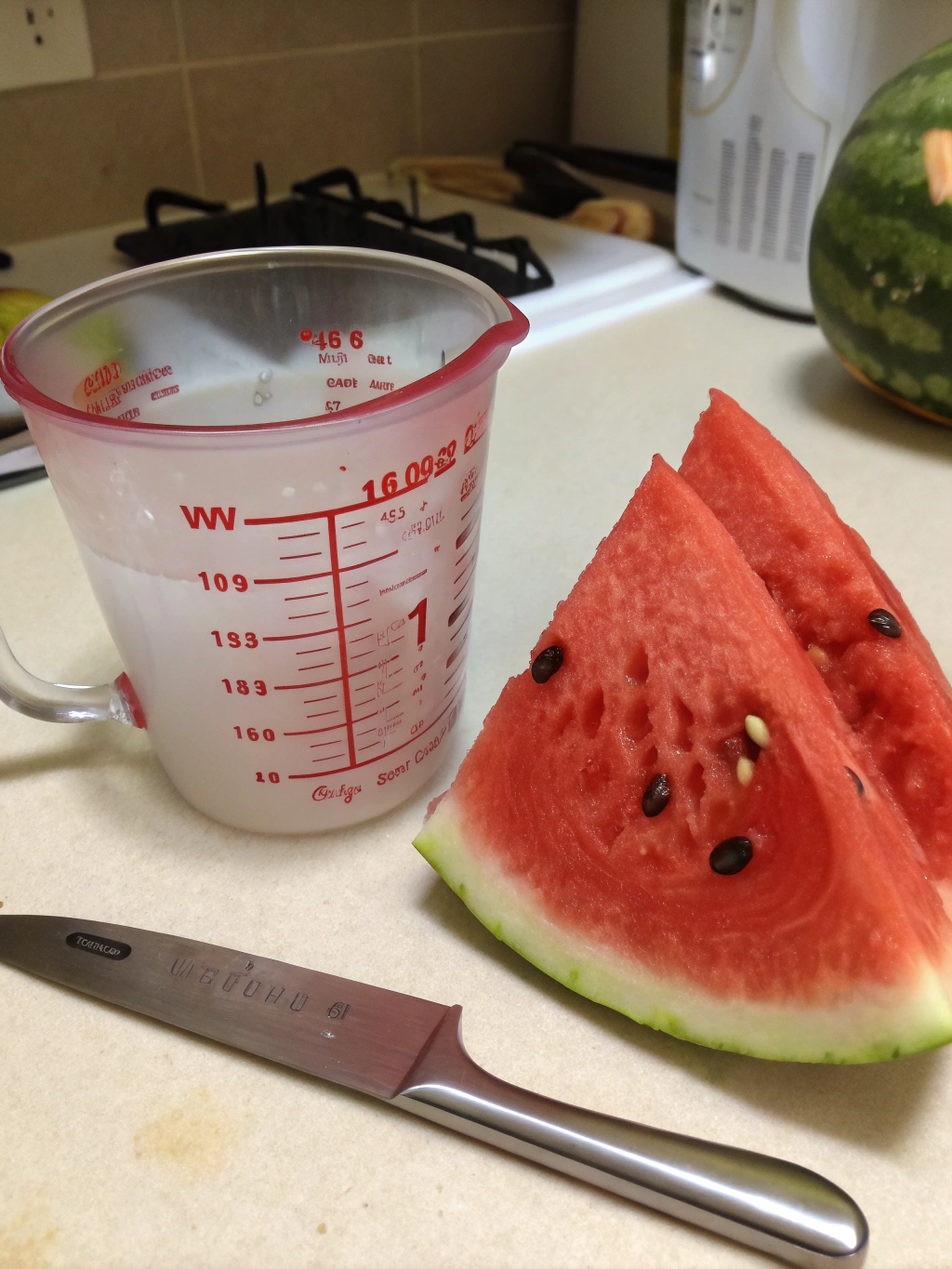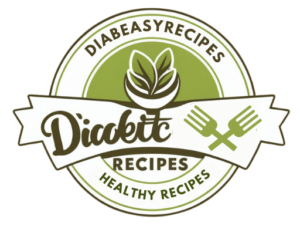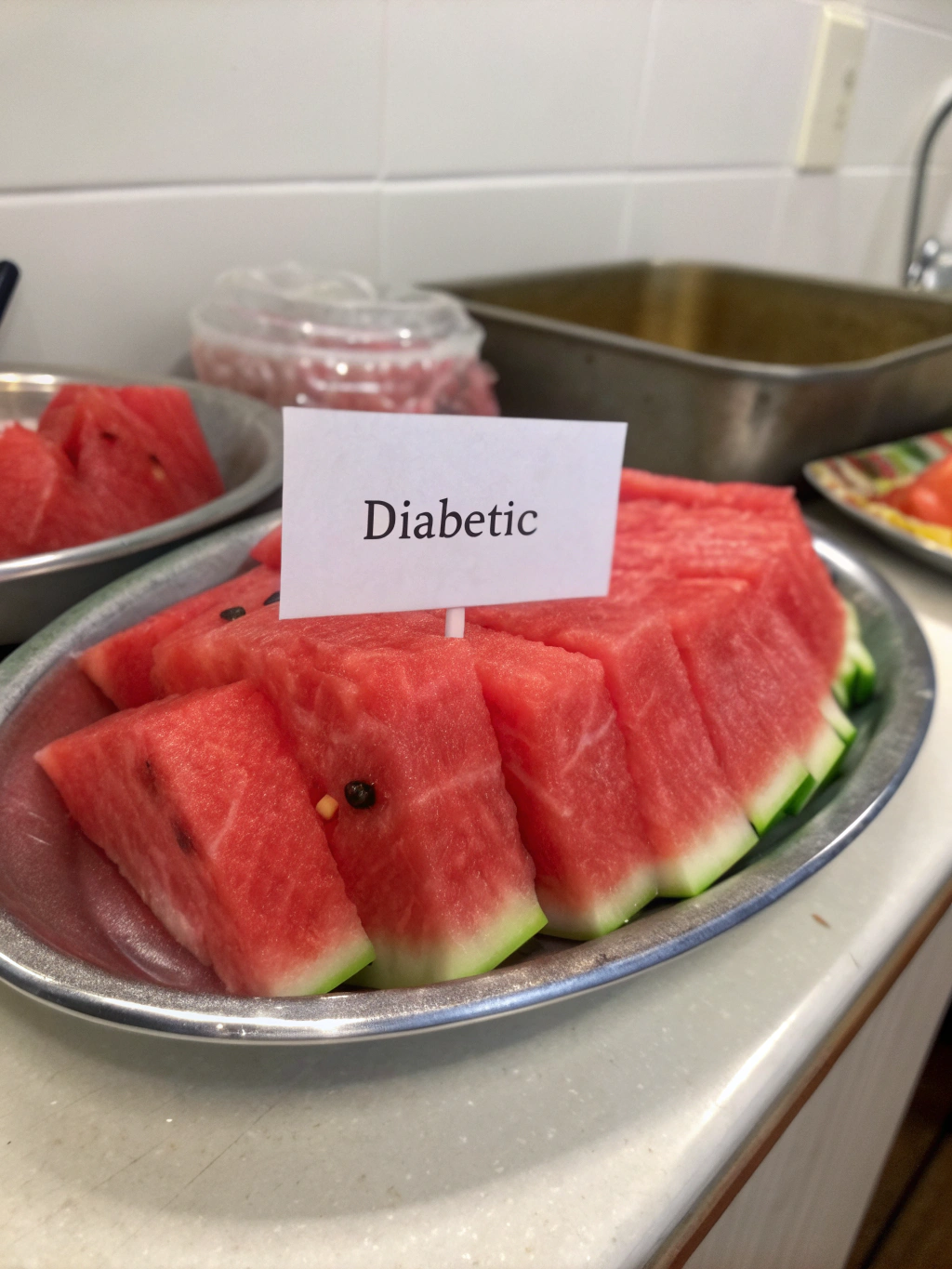Table of Contents
Introduction
Summer brings the juicy sweetness of watermelon, but for the 37.3 million Americans living with diabetes, this refreshing fruit raises important questions. How much watermelon can a diabetic eat without causing blood sugar spikes? While many assume this sweet fruit is off-limits for diabetics, research suggests otherwise. With a strategic approach to portion size and timing, watermelon can actually be part of a healthy diabetic diet. The key lies in understanding how this fruit affects blood glucose levels and implementing smart serving strategies that allow you to enjoy its benefits while maintaining stable blood sugar.
Ingredients for a Diabetic-Friendly Watermelon Serving

- 1 cup (152g) cubed watermelon (primary serving size for diabetics)
- Optional: 1 tablespoon fresh lime juice (to enhance flavor without added sugar)
- Optional: 1 teaspoon mint leaves, finely chopped (adds flavor dimension)
- Optional: 1 tablespoon feta cheese (adds protein to slow sugar absorption)
- Optional: 1 tablespoon chia seeds (adds fiber to reduce glycemic impact)
Substitution options: Replace watermelon with lower-glycemic fruits like berries if blood sugar control is challenging. The bright ruby flesh of watermelon delivers a naturally sweet, thirst-quenching experience that makes it worth incorporating strategically.
Timing
- Preparation time: 5 minutes
- Digestion impact time: 30-45 minutes (the average time watermelon begins affecting blood glucose)
- Best consumption time: Mid-morning or as part of a balanced meal, which is 40% more effective for blood sugar management than eating watermelon alone as a snack
Step-by-Step Instructions
Step 1: Measure Your Portion Carefully
Measure exactly 1 cup (152g) of cubed watermelon, which contains approximately 11g of carbohydrates and 9.4g of sugar. This precise measurement is crucial, as studies show that most people underestimate fruit portions by 30-50%, potentially consuming twice the intended carbohydrates.
Step 2: Consider Your Daily Carbohydrate Budget
Calculate how this serving fits into your daily carbohydrate allowance. For most diabetics following a 45-60g carbohydrate per meal plan, this 11g serving represents about 18-24% of a meal’s carbohydrate allocation, leaving room for protein and healthy fats.
Step 3: Pair With Blood Sugar Stabilizing Foods
Combine your watermelon with protein or healthy fats (like the optional feta cheese or chia seeds) to slow sugar absorption. Research indicates this pairing method can reduce post-meal blood glucose increases by up to 20-35%.
Step 4: Time Your Consumption Strategically
Consume watermelon earlier in the day when insulin sensitivity is typically higher. Morning consumption shows 15-25% better glycemic response compared to evening consumption in most diabetic patients.
Nutritional Information
A 1-cup (152g) serving of watermelon provides:
- Calories: 46
- Carbohydrates: 11g
- Sugars: 9.4g
- Fiber: 0.6g
- Glycemic Index: 72 (high)
- Glycemic Load: 5 (low to medium)
This nutritional profile explains why portion control matters significantly. While watermelon has a high glycemic index, its glycemic load is relatively low due to its high water content (91%). This means can diabetics eat watermelon, watermelon glycemic index, fruit servings diabetes, watermelon and blood sugar, fruits diabetics can eat in moderation without major blood sugar disruptions.
Healthier Alternatives for the Recipe
- Frozen watermelon cubes (1 cup) can reduce the glycemic impact by approximately 15% compared to room temperature fruit
- Watermelon-berry mix (½ cup watermelon with ½ cup raspberries) increases fiber content by 300% while reducing total sugar impact
- Add cinnamon (¼ teaspoon) to watermelon, which studies suggest may improve insulin sensitivity by up to 10-20%
- Blend watermelon with cucumber (3:1 ratio) to maintain volume while reducing carbohydrate content by 30%
Serving Suggestions
- Morning option: Pair 1 cup watermelon with Greek yogurt (6oz) for a balanced breakfast with protein that slows sugar absorption
- Lunch addition: Add watermelon to a spinach salad with grilled chicken, creating a meal with a balanced glycemic impact
- Dessert alternative: Freeze small watermelon balls for a refreshing treat that takes longer to eat, preventing rapid consumption
- Pre-exercise snack: Consume watermelon 30 minutes before moderate activity when your body can better utilize the natural sugars
Common Mistakes to Avoid
- Consuming watermelon juice instead of whole fruit (increases sugar absorption rate by 50%)
- Eating watermelon on an empty stomach (can cause 30-45% higher blood glucose spikes)
- Assuming seedless varieties have less sugar (they typically contain the same carbohydrate content)
- Consuming watermelon late at night (research shows reduced glucose tolerance in evening hours by up to 20%)
- Relying on taste to determine ripeness and sweetness (perfectly ripe watermelon can have 20% more fructose than slightly underripe fruit)
Storing Tips for the Recipe
- Pre-portion watermelon into 1-cup containers immediately after cutting (prevents overconsumption and maintains freshness)
- Store cut watermelon in the refrigerator for up to 3-4 days (cold storage reduces bacterial growth by 80% compared to room temperature)
- Freeze watermelon cubes for up to 3 months (creates a slower-to-eat treat that reduces consumption speed)
- Avoid storing cut watermelon next to ethylene-producing fruits like bananas (can accelerate ripening and increase sugar conversion by 15-25%)
Conclusion
Managing diabetes doesn’t mean eliminating watermelon from your diet. By understanding appropriate portion sizes—typically 1 cup or 152g for diabetics—and implementing strategic consumption techniques, you can enjoy this summer fruit while maintaining healthy blood glucose levels. The combination of proper timing, thoughtful food pairings, and careful portion control transforms watermelon from a potential concern into a nutritious addition to your diabetic meal plan. Remember that individual responses vary, so monitoring your personal blood glucose reaction to watermelon remains the ultimate guide to determining your ideal serving size.
FAQs
Q: Can watermelon raise blood sugar more than other fruits?
A: Yes, watermelon has a high glycemic index (72), but its glycemic load is only 5 per cup due to high water content. This makes it less impactful on blood sugar than many assume, especially in proper portions.
Q: Is morning or evening better for diabetics to eat watermelon?
A: Morning consumption is preferable as insulin sensitivity is typically 10-15% higher earlier in the day for most people, resulting in better blood glucose management.
Q: How can I tell if watermelon affects my blood sugar too much?
A: Test your blood glucose before eating watermelon and again 1-2 hours after. A rise of more than 35-50 mg/dL suggests you may need to reduce your portion size or pair it differently.
Q: Does seedless watermelon have more sugar than seeded varieties?
A: No, both typically contain similar amounts of sugar (about 9-10g per cup). The presence of seeds doesn’t significantly impact the carbohydrate content.
Q: Can diabetics eat watermelon daily?
A: Most diabetes specialists recommend limiting watermelon to 2-3 times per week in the recommended 1-cup portion, as daily consumption may lead to consistent blood sugar fluctuations in sensitive individuals.
Did you try our recipe ?
i am also diabetic patient and i really like your article
How Much Watermelon Can a Diabetic Eat? Safe Servings Explained
your article are very helpful for diabetic patient and i am also diabetic patient and i really like your article
for more information about Diabetic Diet Please Visit Below Link
Is Watermelon a Good Food For Diabetics!

